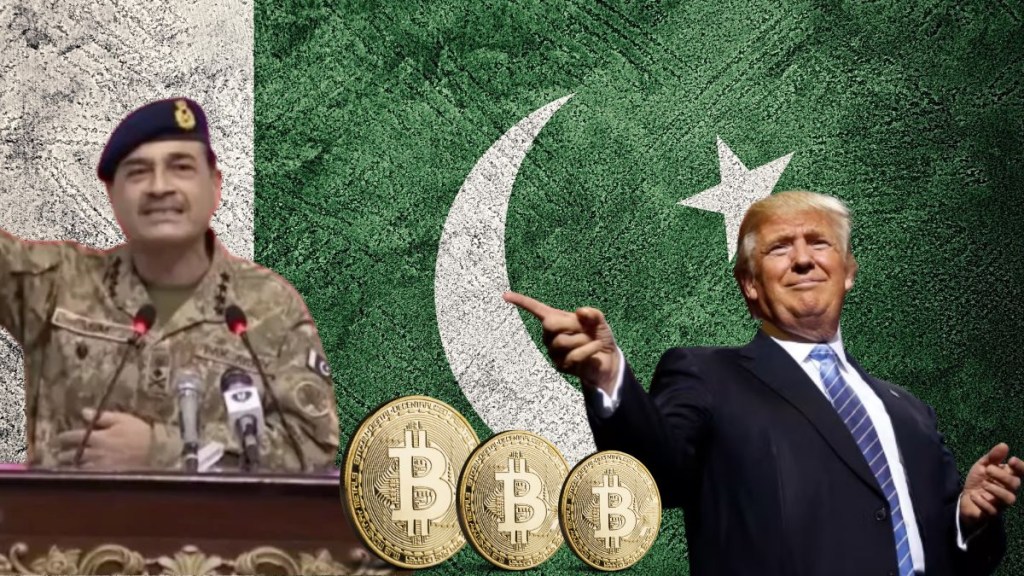Ties between the United States and India have hit a rough patch, especially after the Trump administration raised the tariffs on Indian goods to 50% in August. Although Trump has repeatedly said that the decision was linked to India’s continuous purchase of Russian oil, the critics, analysts, and media reports – all tell a different story.
Trump’s family business ties in Pakistan: Personal profits over partnership with India?
Former US National Security Advisor Jake Sullivan recently accused Trump of damaging America’s ties with India in order to boost his family’s business interests in Pakistan. He said this decision caused serious harm to the United States’ long-term strategy. “Due to Pakistan’s willingness to engage in business deals with the Trump family, Trump has sidelined the India relationship. This is a major strategic setback because a strong India-US partnership serves our core interests,” he said.
Sullivan explained that for decades, leaders from both Republican and Democratic parties had worked together to strengthen relations with India, the world’s largest democracy. He pointed out that the US and India share common ground in areas like technology, talent, and the economy, and also in countering the growing challenge from China. By putting this relationship at risk, Sullivan argued, Trump has weakened America’s position at a crucial time.
Before becoming US president, Trump often projected himself as one of the country’s top businessmen, and it seems he has carried that same business-first mindset into the White House.
To give context, the Trump family, including Donald Trump Jr., Eric Trump, and Jared Kushner, own a majority of share in World Liberty Financial, a digital finance company which was launched in 2024. In April 2025, the company signed an agreement with Pakistan’s Crypto Council to promote Pakistan as a center for cryptocurrency in South Asia.
A report by Financial Times had in July said that Pakistan was preparing to roll out new crypto laws to strengthen its place as one of the world’s fastest-growing digital currency markets. The announcement came during the signing of the agreement between World Liberty Financial (WLF) and Pakistan’s Crypto Council (PCC). The meeting was joined virtually by Finance Minister Muhammad Aurangzeb, while PCC chief Bilal Bin Saqib, the head of the Securities and Exchange Commission of Pakistan, and the State Bank governor were also in attendance.
In May, Pakistan’s finance ministry announced plans to set up a digital assets authority to oversee blockchain-based financial systems. Around the same time, Islamabad signed a letter of intent with Trump-backed World Liberty Financial, involving figures like Zach Witkoff, the son of Trump envoy Steve Witkoff, to work on blockchain and stablecoin adoption.
Pakistan’s crypto minister Bilal bin Saqib has been leading these efforts. In Las Vegas, speaking before US vice-president JD Vance and Eric Trump, he credited Donald Trump as “the president who saved crypto.” He later visited the White House, met Wall Street executives in New York, and invited Tron founder Justin Sun, who has Trump family ties, to visit Pakistan.
Saqib told the Financial Times that Pakistan’s crypto diplomacy has “allowed us to rebrand Pakistan as a builder, not just beneficiary, in the global innovation ecosystem.”
When Pakistan’s army chief Asim Munir met Donald Trump for lunch at the White House, the report suggests that they discussed trade and Pakistan’s potential in bitcoin mining and rare earth minerals. It further added that Munir was also given a Maga hat and a symbolic White House key. The lunch came after months of efforts by Pakistan to win over investors and people close to the US President.
Trump turns to Pakistan for oil and minerals, eyes big trade shift?
Donald Trump had in July announced that the US will work with Pakistan to develop its “massive” oil reserves, even suggesting that India could one day buy oil from its neighbour. The new deal signals a clear shift in Trump’s trade focus toward Pakistan, with promises of more investment and possibly lower tariffs.
Pakistan has alleged that it holds massive untapped reserves of oil, copper, gold, lithium, and rare earth minerals—materials needed for clean energy, batteries, and electronics. According to Foreign Policy and Fox Business, the estimated value of these resources ranges from $8 trillion to $50 trillion.
Trump’s interest is also tied to cutting America’s reliance on China, which currently dominates the global supply of critical minerals. Pakistan’s Balochistan region, home to the giant Reko Diq copper-gold mine, has become a key target for US companies.
As reported by the Independent, US official Eric Meyer met Pakistan’s Prime Minister at a mining forum in Islamabad earlier this year. Washington showed strong interest in Pakistan’s mineral wealth, particularly copper, gold, and lithium.
What have other critics and analysts said?
Senior US analyst and a professor at New York University, Edward Price, while speaking to ANI, urged Trump to scrap the tariffs completely and even issue an apology to India. “We need to remove the 50% tariff on India and get it down to something far more reasonable, I suggest zero per cent and apologise,” said Price.
He added that it made little sense for the US to impose steep tariffs on India while it is already facing tensions with China and is caught up in a conflict with Russia. According to him, lowering tariffs to zero would be a smarter move and would help strengthen ties with New Delhi.
